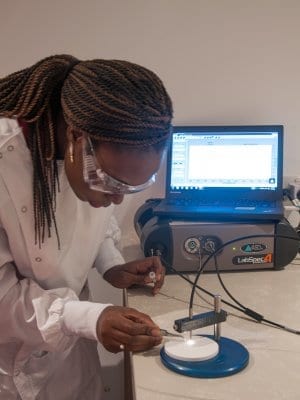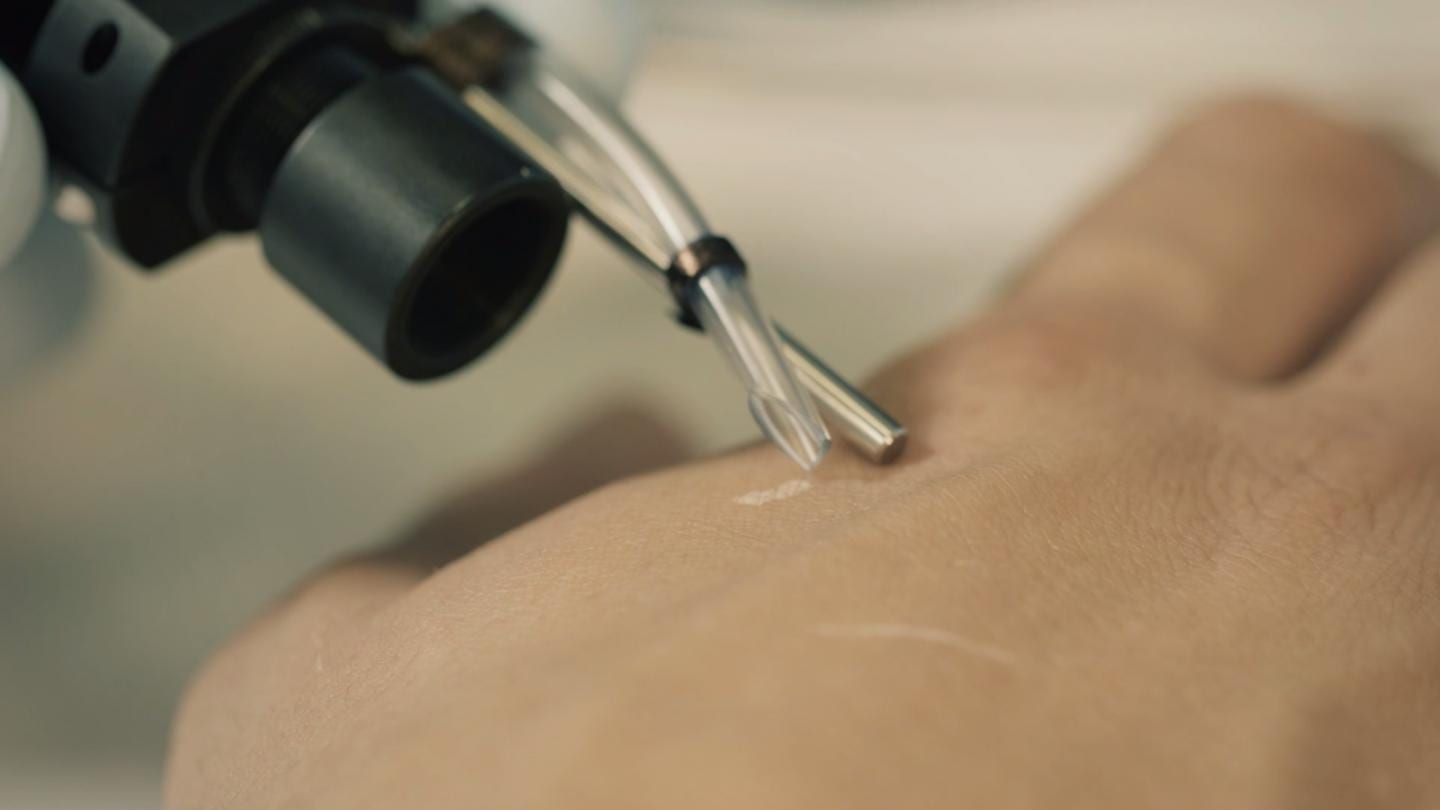
A cheap and effective tool that could save lives by helping health authorities target mosquitos infected with Zika virus has been developed by researchers from the University of Queensland and colleagues in Brazil.
Dr Maggy Sikulu-Lord and Dr Jill Fernandes, at the Queensland Alliance for Agriculture and Food Innovation, found Near Infrared Spectroscopy (NIRS) was 18-times faster and 110-times cheaper than the current detection method.
“We can quickly identify mosquitoes that are infected with Zika virus so public health authorities can treat affected areas before disease spreads to humans,” Dr Sikulu-Lord said.
“This is definitely going to be a game-changer in disease surveillance, especially in the prediction of disease outbreaks.
“It only involves shining a beam of light onto mosquitoes and using that information to determine if the mosquito is infected.”
Zika is a mosquito-borne virus that can cause abnormalities in unborn babies and is linked to the rare paralysing condition called Guillain-Barre Syndrome (GBS).
Dr Sikulu-Lord hopes the World Health Organisation will use NIRS in countries where Zika is endemic.
“We hope public health authorities can use it to predict future disease outbreaks and save lives by treating mosquito populations in time.”
She said the technology had potential to detect a number of diseases.
“We hope to have results for detecting dengue and malaria in mosquitoes in the next few months.
“We don’t think it will eradicate diseases but it will give us the ability to detect diseases quickly so that we can stop disease outbreaks.”
So far, NIRS technology has been shown to have a 94 to 99 per cent accuracy rate in identifying infected mosquitoes under laboratory conditions in Brazil.
The team, which includes researchers Dr Rafael de Freitas and his team (Fiocrus, Rio de Janeiro) Dr John Beier (University of Miami) and Dr Floyd Dowell (USDA), is testing the accuracy of the technique under field conditions in Rio de Janeiro.
Learn more: UQ Zika detection breakthrough a potential lifesaver
The Latest on: Disease surveillance
[google_news title=”” keyword=”disease surveillance” num_posts=”10″ blurb_length=”0″ show_thumb=”left”]
via Google News
The Latest on: Disease surveillance
- Chronic Wasting Disease Discovered in California Deer For the First Time; Fish & Wildlife Asks Hunters and Others to Be on the Lookout for Symptomson May 7, 2024 at 3:27 pm
Press release from the California Department of Fish and Wildlife: Chronic wasting disease (CWD) has been detected for the first time in California’s deer and elk. The California Department of Fish ...
- Bsal and beyond: Task force helps stave off amphibian disease threaton May 7, 2024 at 2:07 pm
Amphibians—like frogs and salamanders—are the most imperiled group of animal species in the world; infectious diseases are among the greatest threats to their existence. After a decade of research, a ...
- Surveillance for Small Renal Masses No Detriment to Nephron-Sparing Surgeryon May 6, 2024 at 8:16 am
SAN ANTONIO -- Delaying surgery for small renal masses in favor of a period of surveillance did not adversely affect feasibility or outcomes of subsequent nephron-sparing interventions, a large ...
- The risks of "Disease X" in Asiaon May 4, 2024 at 8:10 pm
Many experts believe it is only a matter of time before "Disease X" arrives, and that it is likely to be 20 times more lethal than Covid-19. "Disease X" refers to a currently unknown infectious but ...
- Surveillance begins on potentially dangerous bugs in Kalamazoo Countyon May 2, 2024 at 5:47 pm
KALAMAZOO COUNTY, MI — Health officials are warning people to watch out for tick and mosquito bites as spring temperatures rise, bringing out the bugs that can be dangerous. County health officials ...
- From sewage to safety: Hospital wastewater surveillance as a beacon for defense against H5N1 bird fluon May 1, 2024 at 1:50 pm
Wastewater surveillance, which demonstrated great potential during the Covid-19 pandemic, remains vastly under-leveraged for H5N1 bird flu at this precarious moment.
- Hajj Pilgrims Get Health Boost in Bill Gates-Supported Disease Control Effort in Saudi Arabiaon April 28, 2024 at 5:56 pm
Hajj pilgrims heading to Saudi Arabia in June will get a health boost under a Bill & Melinda Gates Foundation-supported disease control drive that’s part of a broader effort to eradicate polio.
- As ticks spread, the US is getting smart about reporting infections and seeing the true extent of Lyme diseaseon April 28, 2024 at 3:43 pm
But what looked like an alarming spike in disease was actually the result of smarter disease surveillance that better reflects what’s happening on the ground. The CDC revised its Lyme ...
- As ticks spread, the US is getting smart about reporting infections and seeing the true extent of Lyme diseaseon April 28, 2024 at 3:43 pm
The Centers for Disease Control and Prevention — the federal agency that monitors diseases and establishes guidelines to protect human health — published a paper in February that shows cases of Lyme ...
via Bing News










